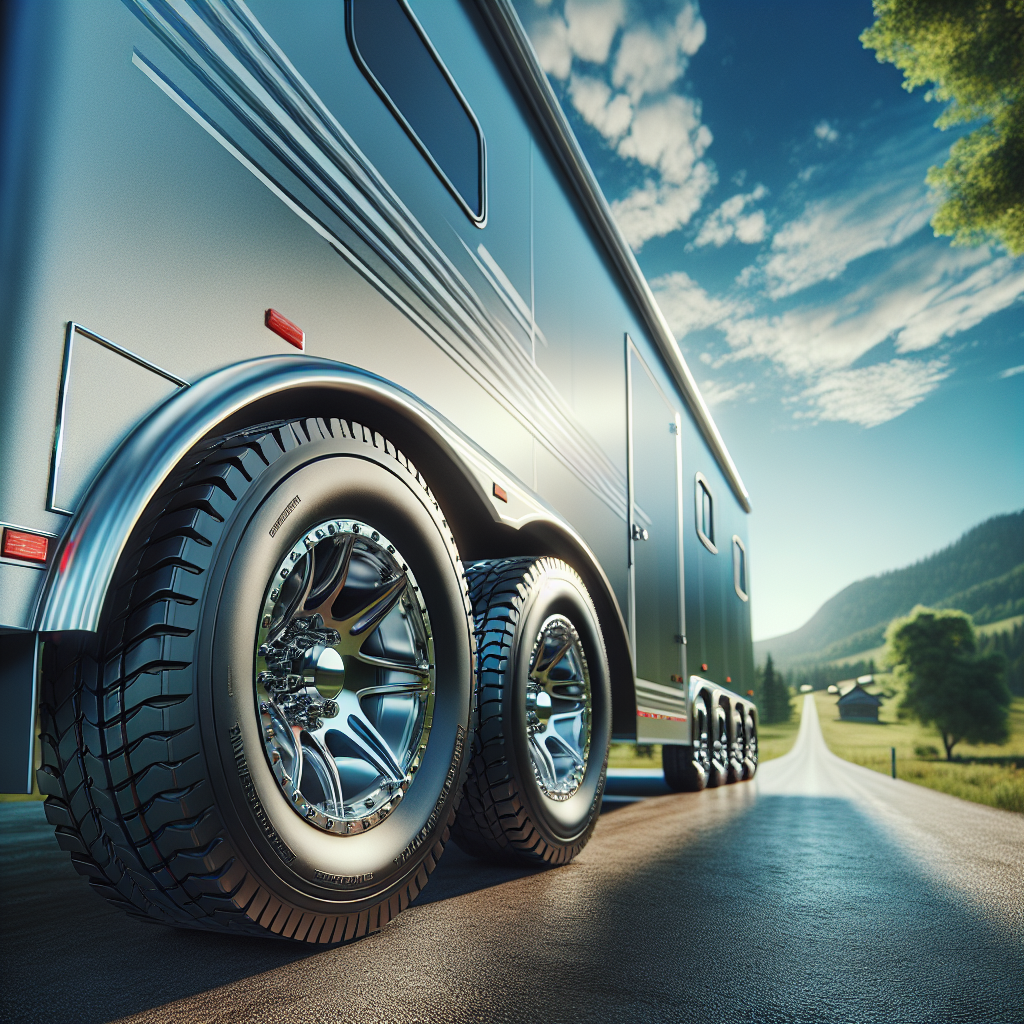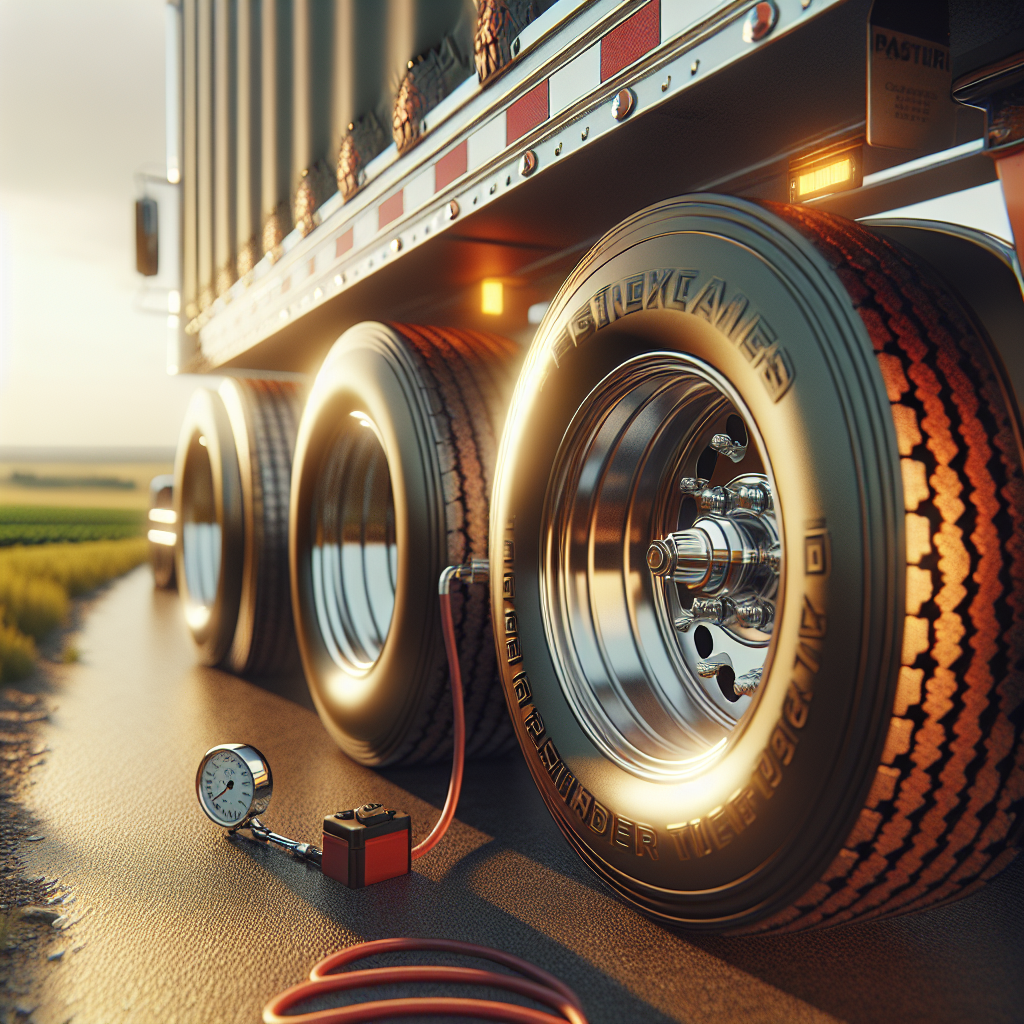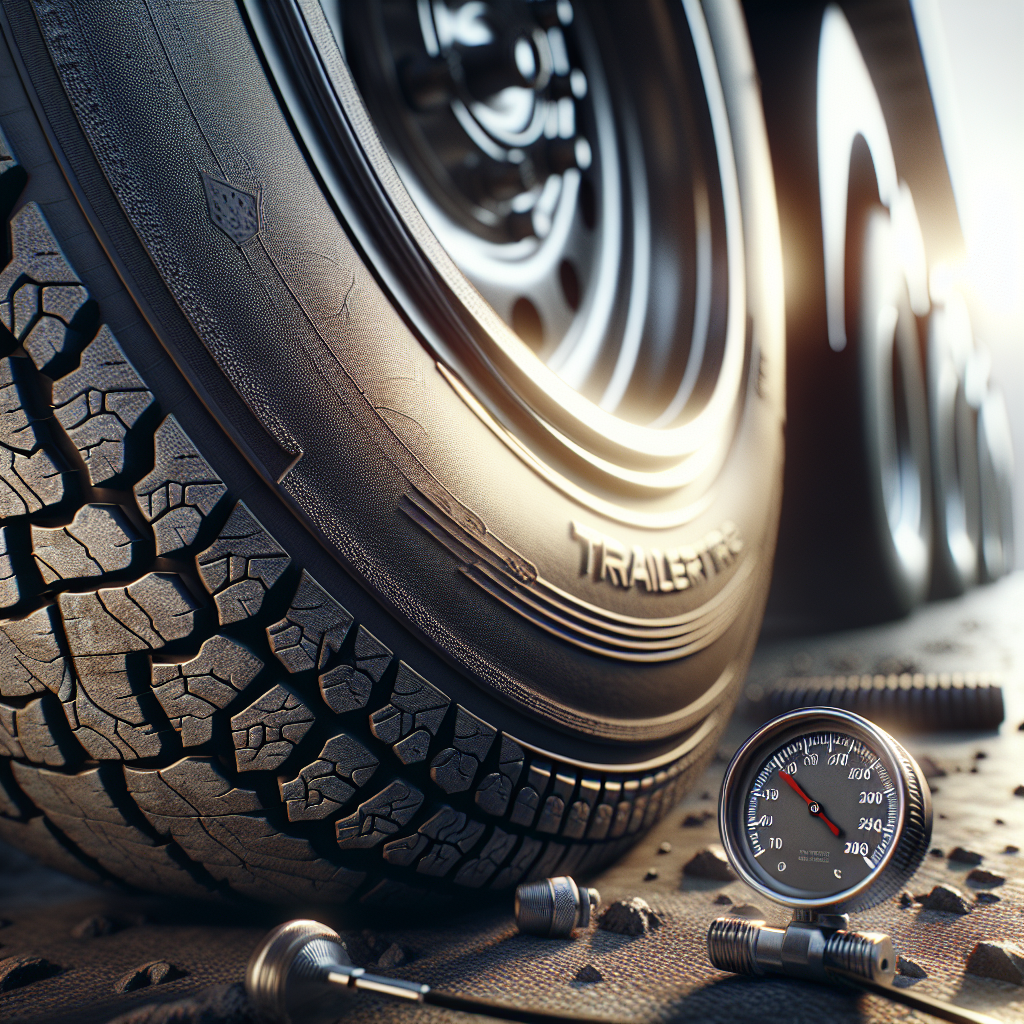Maintaining the correct tire pressure on your trailer is crucial for **optimal performance** and **safety**. Tire pressure directly affects a trailer's handling, fuel efficiency, and overall stability. When the pressure is too low, tires can overheat, leading to premature wear and the risk of blowouts. Conversely, over-inflated tires can reduce traction and lead to uneven wear patterns.
Factors influencing what should the tire pressure be on a trailer include:
- Load Weight: The weight carried by the trailer significantly impacts tire pressure requirements. Heavier loads may necessitate higher pressures to ensure that the tires can support the weight safely.
- Tire Type: Different tires are designed for different purposes, and each has its own recommended pressure range. Always consult the manufacturer’s specifications.
- Temperature: Tire pressure can fluctuate with temperature changes. It’s advisable to check pressure when tires are cold to get an accurate reading.
Regularly monitoring tire pressure helps prevent **catastrophic failures** that can occur due to neglect. With a smart monitoring system, you can easily keep track of your trailer's tire condition. Tow with peace of mind, knowing that trailerwatchdog is standing guard.
Recommended Tire Pressure for Different Trailers

When it comes to determining the correct tire pressure for your trailer, it's essential to recognize that different types of trailers have varying requirements. The recommended tire pressure can depend on several factors, including the trailer's design, load capacity, and tire specifications.
Here are some general guidelines for recommended tire pressures based on trailer types:
- Utility Trailers: Typically, the recommended tire pressure ranges from 50 to 70 PSI, depending on the load being carried. Always refer to the specific tire manufacturer’s guidelines.
- Boat Trailers: For boat trailers, the ideal tire pressure usually falls between 50 to 60 PSI. This ensures adequate support for the weight of the boat while maintaining stability on the road.
- Travel Trailers: These trailers often require a tire pressure of 65 to 80 PSI, especially when loaded. Checking the tire sidewall for specifications is recommended.
- Fifth Wheel Trailers: Fifth wheels typically have higher pressure requirements, usually around 80 PSI, due to the added weight and unique towing dynamics.
It is crucial to consult the tire's sidewall markings and the trailer’s owner's manual for the most accurate tire pressure recommendations. Regularly monitoring and adjusting tire pressure can significantly enhance your trailer's performance and safety.
How to Measure Trailer Tire Pressure Accurately
Accurate measurement of your trailer's tire pressure is vital for safe towing and optimal tire performance. Following a systematic approach can help ensure you get the most reliable readings. Here’s how to measure trailer tire pressure accurately:
- Gather Your Tools: Start by acquiring a reliable tire pressure gauge. Digital gauges tend to offer precision, but a good analog gauge can also work well.
- Check Tire Temperature: For the most accurate reading, measure tire pressure when the tires are cold. Tire temperature can increase after driving, leading to inflated pressure readings.
- Remove Valve Cap: Carefully unscrew the valve cap from the tire you wish to measure. Keep it in a safe place to avoid losing it.
- Press the Gauge: Firmly press the tire pressure gauge onto the valve stem. Ensure a good seal to prevent air from escaping, which can affect your reading.
- Read the Measurement: Note the pressure reading displayed on your gauge. Compare it with the recommended tire pressure for your specific trailer type.
- Adjust as Necessary: If the tire pressure is too low, inflate it to the recommended level. Conversely, if it’s too high, release some air until it reaches the ideal pressure.
Regularly checking your trailer tire pressure can prevent issues on the road and enhance overall safety. Make it a habit to check tire pressure before each trip to ensure peace of mind during your travels.
Impact of Incorrect Tire Pressure on Performance

Maintaining the correct tire pressure on your trailer is crucial for ensuring optimal performance and safety. When the tire pressure is incorrect, it can lead to a variety of issues that affect not only the trailer but also the towing vehicle and overall driving experience. Here are some significant impacts of incorrect tire pressure:
- Poor Fuel Efficiency: Under-inflated tires create more rolling resistance, which means your vehicle has to work harder to maintain speed. This can lead to increased fuel consumption, costing you more in the long run.
- Uneven Tire Wear: Incorrect tire pressure can cause uneven wear patterns on your trailer tires. Over-inflated tires may wear out the center tread faster, while under-inflated tires can wear the edges, significantly shortening their lifespan.
- Reduced Handling and Stability: Tires that are not properly inflated can compromise the towing stability of your trailer. This can lead to swaying or fishtailing, making it difficult to control the trailer, especially at high speeds or on slippery surfaces.
- Increased Risk of Blowouts: Over time, consistently low or high tire pressure can lead to tire blowouts. This not only creates a dangerous situation on the road but can also result in costly repairs and potential accidents.
- Decreased Load Carrying Capacity: Each tire has a specified load-carrying capacity that is directly related to its inflation pressure. Incorrect tire pressure can lead to carrying loads beyond a tire's capabilities, significantly increasing the risk of tire failure.
Understanding these impacts underscores the importance of regular tire pressure checks. Keeping your trailer's tires properly inflated not only enhances performance but also ensures a safer towing experience.
Tips for Maintaining Proper Tire Pressure

Maintaining proper tire pressure is essential for the performance, safety, and longevity of your trailer tires. Here are some effective tips to help you keep your trailer's tire pressure at optimal levels:
- Regular Inspections: Make it a habit to check your tire pressure at least once a month and before long trips. Use a reliable tire pressure gauge to ensure accuracy.
- Check When Cold: Tire pressure should be checked when the tires are cold, as driving can increase tire temperature and pressure. This ensures that you get an accurate reading.
- Follow Manufacturer Guidelines: Refer to your trailer's owner manual or the placard located on the trailer for the correct tire pressure specifications. Adhering to these guidelines is crucial for safety and performance.
- Adjust for Load Changes: If you're hauling a heavy load, remember that tire pressure may need to be adjusted. Increased load can require higher tire pressure to maintain safety and performance.
- Monitor Temperature Changes: Tire pressure can fluctuate with changes in temperature. Cold weather can reduce tire pressure, so it's important to check and adjust accordingly during seasonal changes.
- Invest in a Tire Monitoring System: Consider using a tire monitoring system, like the one offered by TrailerWatchdog, to receive real-time alerts about tire pressure and temperature. This proactive approach can help you maintain optimal conditions and avoid potential issues.
By following these tips, you can ensure that your trailer tires remain properly inflated, enhancing safety and performance on the road.
Using Technology to Monitor Tire Pressure

In today's digital age, leveraging technology to monitor tire pressure has become an essential tool for trailer owners looking to enhance safety and performance. With advancements in tire monitoring systems, you can now easily keep track of your tire pressure and temperature in real-time, allowing you to address any issues before they escalate into serious problems.
Here are some ways technology can assist in monitoring tire pressure:
- Real-Time Alerts: Smart tire monitoring systems provide instant notifications directly to your smartphone or dashboard when tire pressure drops below the recommended levels. This feature ensures you never miss a critical warning.
- Data Logging: Many systems record historical data, allowing you to analyze trends in tire pressure and temperature over time. This information can be invaluable for understanding how different loads and conditions affect your trailer.
- Easy Installation: Modern tire monitoring systems are user-friendly and can be easily installed on a variety of trailer types. They often come with wireless sensors that quickly attach to your tires, making setup hassle-free.
- Enhanced Safety: By consistently monitoring tire pressure, you can prevent blowouts and reduce the risk of accidents caused by tire failure. This proactive approach to maintenance ultimately enhances the overall safety of your towing experience.
Investing in a tire monitoring system like TrailerWatchdog can transform your trailer into a smart trailer, giving you peace of mind while you travel. With our advanced technology, you can tow with confidence, knowing that we are standing guard to protect your journey.








